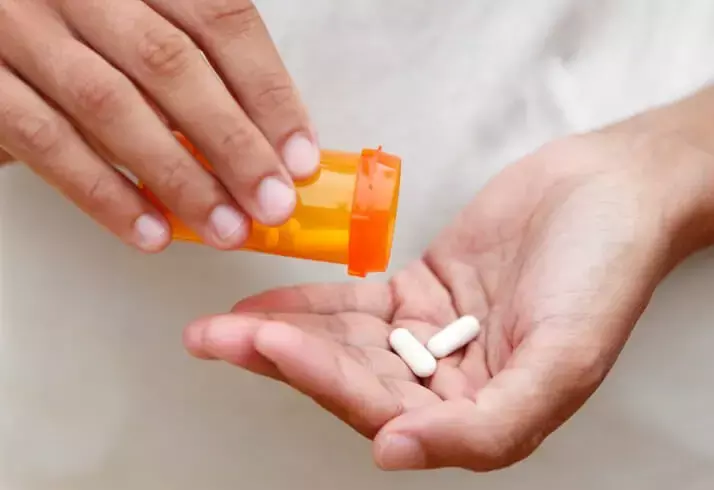- Home
- Medical news & Guidelines
- Anesthesiology
- Cardiology and CTVS
- Critical Care
- Dentistry
- Dermatology
- Diabetes and Endocrinology
- ENT
- Gastroenterology
- Medicine
- Nephrology
- Neurology
- Obstretics-Gynaecology
- Oncology
- Ophthalmology
- Orthopaedics
- Pediatrics-Neonatology
- Psychiatry
- Pulmonology
- Radiology
- Surgery
- Urology
- Laboratory Medicine
- Diet
- Nursing
- Paramedical
- Physiotherapy
- Health news
- Fact Check
- Bone Health Fact Check
- Brain Health Fact Check
- Cancer Related Fact Check
- Child Care Fact Check
- Dental and oral health fact check
- Diabetes and metabolic health fact check
- Diet and Nutrition Fact Check
- Eye and ENT Care Fact Check
- Fitness fact check
- Gut health fact check
- Heart health fact check
- Kidney health fact check
- Medical education fact check
- Men's health fact check
- Respiratory fact check
- Skin and hair care fact check
- Vaccine and Immunization fact check
- Women's health fact check
- AYUSH
- State News
- Andaman and Nicobar Islands
- Andhra Pradesh
- Arunachal Pradesh
- Assam
- Bihar
- Chandigarh
- Chattisgarh
- Dadra and Nagar Haveli
- Daman and Diu
- Delhi
- Goa
- Gujarat
- Haryana
- Himachal Pradesh
- Jammu & Kashmir
- Jharkhand
- Karnataka
- Kerala
- Ladakh
- Lakshadweep
- Madhya Pradesh
- Maharashtra
- Manipur
- Meghalaya
- Mizoram
- Nagaland
- Odisha
- Puducherry
- Punjab
- Rajasthan
- Sikkim
- Tamil Nadu
- Telangana
- Tripura
- Uttar Pradesh
- Uttrakhand
- West Bengal
- Medical Education
- Industry
Oral semaglutide greatly reduces blood sugar and weight in type 2 diabetes patients: Study

USA: Treatment with oral semaglutide in type 2 diabetes patients results in consistently greater HbA1c reduction and weight loss, and more gastrointestinal adverse events were observed with oral semaglutide, versus comparators, across subgroups, says a recent study. Higher HbA1c reductions was observed at higher HbA1c levels. The study appears in the journal Diabetes, Obesity and Metabolism.
The study was conducted by Vanita R. Aroda, Brigham and Women's Hospital, Harvard Medical School, Boston, MA, USA, and colleagues with an objective to evaluate the efficacy and safety of oral semaglutide versus comparators by patient characteristic subgroups in patients with type 2 diabetes.
For this purpose, the researchers assessed change from baseline in HbA1c and body weight, and achievement of HbA1c <7.0% with oral semaglutide 7 mg, 14 mg, flexibly dosed (flex), or comparators across baseline subgroups (age, ethnicity, race, body mass index, diabetes duration, and HbA1c) from the PIONEER programme.
A mixed model for repeated measurements for continuous variables and a logistic regression model for the binary endpoint was used to analyse the treatment differences. Pooled safety data were analysed descriptively.
The findings of the study were as follows:
- Changes from baseline in HbA1c and body weight, and the odds of achieving HbA1c <7.0%, were greater with oral semaglutide 14 mg/flex (n=1934) and higher or similar with oral semaglutide 7 mg (n=823), versus comparators (n=2077) across most subgroups.
- Changes in HbA1c with oral semaglutide 14 mg/flex were greater for patients with higher baseline HbA1c (HbA1c >9.0%: –1.7 to –2.6%; HbA1c <8.0%: –0.7 to –1.2%).
- In some trials, Asian patients experienced greater HbA1c reductions with oral semaglutide 14 mg/flex (–1.5 to –1.8%) than other racial populations (–0.6 to –1.6%).
- Overall incidence of adverse events with oral semaglutide was similar to comparators and consistent across subgroups. More gastrointestinal adverse events were observed with oral semaglutide, versus comparators, across subgroups.
To conclude, "oral semaglutide is associated with both a higher reduction in HbA1c compared to comparators, and a higher incidence of gastrointestinal side effects."
Reference:
Aroda VR, Bauer R, Christiansen E, Haluzík M, Kallenbach K, Montanya E, Rosenstock J, Meier JJ. Efficacy and safety of oral semaglutide by subgroups of patient characteristics in the PIONEER phase 3 programme. Diabetes Obes Metab. 2022 Apr 4. doi: 10.1111/dom.14710. Epub ahead of print. PMID: 35373893.
Dr Kamal Kant Kohli-MBBS, DTCD- a chest specialist with more than 30 years of practice and a flair for writing clinical articles, Dr Kamal Kant Kohli joined Medical Dialogues as a Chief Editor of Medical News. Besides writing articles, as an editor, he proofreads and verifies all the medical content published on Medical Dialogues including those coming from journals, studies,medical conferences,guidelines etc. Email: drkohli@medicaldialogues.in. Contact no. 011-43720751


